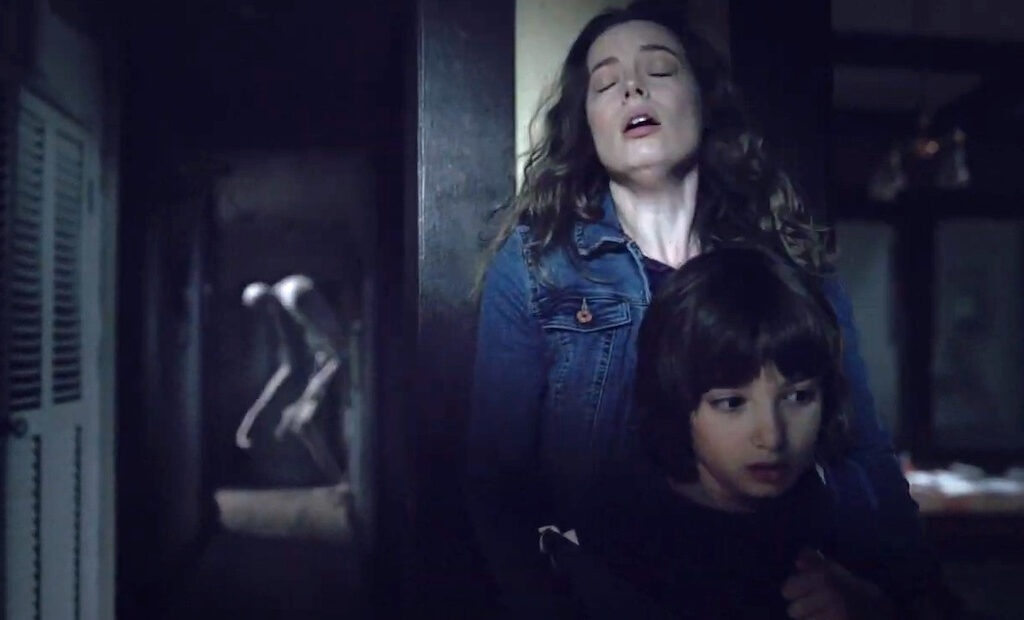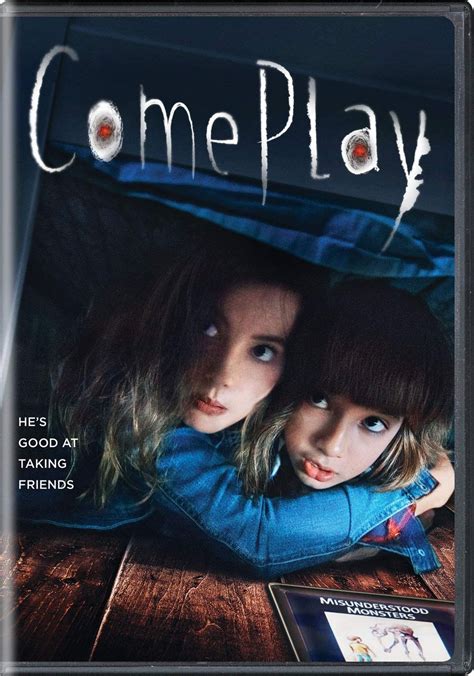Come Play

At numerous points during Jacob Chase’s Come Play there’s a sneaking suspicion that instead of watching an original horror movie, audiences are in fact being presented with a curated series of reinterpretations of key moments and themes from other (better) films. The makers of The Babadook, Poltergeist, and Lights Out might not quite be preparing a claim for intellectual property theft, but the similarities are glaring. Originality doesn’t play a role in Come Play; nor does subtlety.
Oliver (Azhy Robertson) is a young boy with non-verbal autism. His condition has isolated him from children his own age, and he relies upon a speech app on his smartphone in order to communicate. He lives with his harassed mother Sarah (Gillian Jacobs), whose marriage to Marty (John Gallagher Jr) is on the rocks. The mysterious appearance of a children’s story on his phone introduces Oliver to an otherworldly creature who claims to want to be his friend – although it’s a horror movie, so clearly there’s a more sinister agenda at play.
The film doesn’t waste time. Young Oliver is seemingly in peril from the very start, before the audience has had the opportunity to care all that much, one way or another. Come Play is distinctly mainstream horror, leaning heavily on certain tropes to create a suitable atmosphere. It’s never really especially scary, and “occasionally moderately creepy” should be the extent of an audience’s expectations. The timing of the various jump scares seems to have been set by an algorithm. Taking the “more is more” approach, Chase throws everything bar the kitchen sink at his characters, with rapidly diminishing results.
While Azhy Robertson is not autistic, he acquits himself well, and his character’s condition is depicted with sensitivity and sufficient plausibility. Jacobs and Gallagher Jr do what they can, but often seem unconvinced by what their characters are saying and doing. In their defence, the actors are burdened with dialogue that apparently exists only to explain the monster to themselves, each other, and the audience – dialogue that tries rather hard to mythologise the film’s insubstantial threat. It’s difficult to be too concerned about a monster, who, for inexplicable reasons, is called Larry. As a perfectly agreeable diversion, Come Play succeeds. As an exercise in horror, it does not.
Oliver Johnston
Come Play is released nationwide on 13th September 2021.
Watch the trailer for Come Play here:



























Facebook
Twitter
Instagram
YouTube
RSS